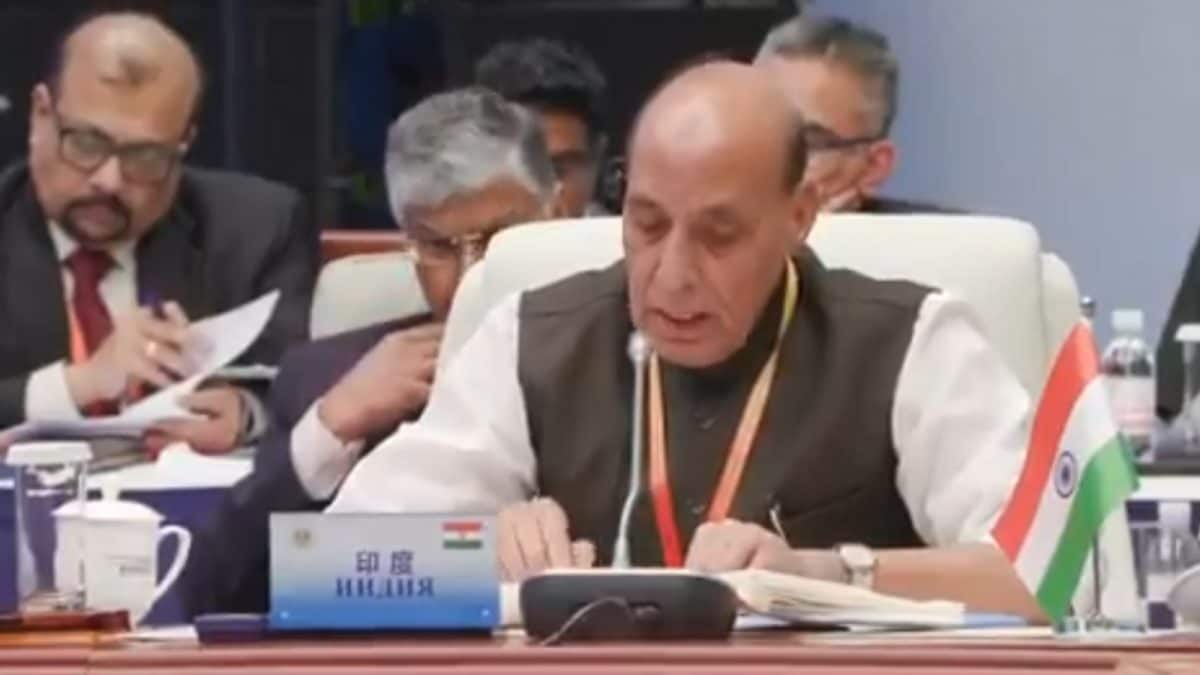That New Bharat won’t sign silence on terrorism was loud and clear at the just-concluded Shanghai Cooperation Organisation (SCO) summit in China. In a rare but resolute act of diplomatic defiance, India’s Defence Minister Rajnath Singh refused to sign the joint communique at the SCO Defence Ministers’ conclave. Why? Because the document deliberately omitted any mention of the April 22 Pahalgam terror attack that killed 26 innocent tourists. This wasn’t just a bureaucratic oversight. It was a deliberate, cowardly act of appeasement—an attempt to shield Pakistan from responsibility. And India? India stood its ground, called out the duplicity, and walked away with its head held high. Yes, this is the New Bharat in action. No longer content with issuing mealy-mouthed condemnations or playing by rules set by others who thrive on double standards. Rajnath Singh’s firm refusal to endorse a document that whitewashes terror is a watershed moment in India’s foreign policy. For the first time, a senior Indian minister attending a major multilateral forum has publicly refused to toe the line when national interests were compromised. That is statesmanship. That is courage. Let’s be clear that the omission of Pahalgam was no accident. The very same joint statement managed to include references to Balochistan—a long-standing obsession of the Pakistani establishment—and that too under the guise of “stability” and “sovereignty.” Why should a regional security bloc like the SCO, supposedly united in the fight against terrorism, fail to acknowledge one of the deadliest cross-border attacks in recent times? The answer lies in China’s manipulative hand and the Pakistani regime’s constant victim-playing. Singh, often seen as one of the more reserved figures in the Modi cabinet, showed his steel. He called out the SCO’s selective amnesia and rejected a document that tried to equate victims with perpetrators. He said in no uncertain terms: “India is not satisfied with the language of the joint document… There was no mention of the terrorist attack in Pahalgam. But there was mention of incidents in Pakistan. This is unacceptable.”

This is more than just a refusal to sign a piece of paper. It is a declaration of India’s non-negotiable red line: terrorism, in any form, from any quarter, will not be normalized, ignored, or selectively condemned. It is also a not-so-subtle message to China, the host nation, that India sees through its games, be it shielding Pakistan’s terror apparatus or building infrastructure in occupied territories. Let us not forget, China continues to block the listing of Pakistani terrorists at the UN, despite overwhelming evidence. It peddles the fiction of “internal unrest” in Balochistan while conveniently ignoring Pakistan’s role in fermenting violence in Kashmir. And now, by omitting Pahalgam, it has once again shown that it stands not for peace or regional stability, but for strategic hedging against India. Unfortunately, this duplicity is not just limited to China. The United States, too, has a long history of switching loyalties when convenient. President Donald Trump’s posturing—promising to root out left-liberals and strengthen nationalist regimes—rang hollow when he quietly backed Pakistan after the Pahalgam attacks. Trump claimed credit for “de-escalating tensions” between India and Pakistan, but what he really did was protect American investments—specifically, the nuclear assets that the US helped bankroll in Pakistan. India had every reason to retaliate after Pahalgam—and it did. In four days of precision strikes, Indian forces demolished nine terror training camps, key LeT and JeM headquarters, and rendered several Pakistani airbases inoperable. Yet, instead of condemning terror, global powers rushed to protect the perpetrators. Why? Because real peace doesn’t suit their strategic calculus. This is precisely why Rajnath Singh’s stand is historic. It signals a shift from passive alignment to active assertion. India is no longer the soft state that signs hollow statements for the sake of photo-ops. It is a sovereign power that refuses to compromise on issues of national security, even if it means standing alone. This is what the world must understand: New Bharat does not beg for validation. It demands respect. Whether it is in bilateral talks or multilateral summits, India will not sign away its dignity, its dead, or its right to call out terrorism—especially when orchestrated by nations pretending to be peacekeepers. Rajnath Singh has done the nation proud. He has shown that strength is not in empty speeches but in action guided by principle. It’s high time the world realized that India, under Modi, will walk out of the room if the price of staying in is silence on terrorism. Bravo, Raksha Mantri ji. India stands with you.




